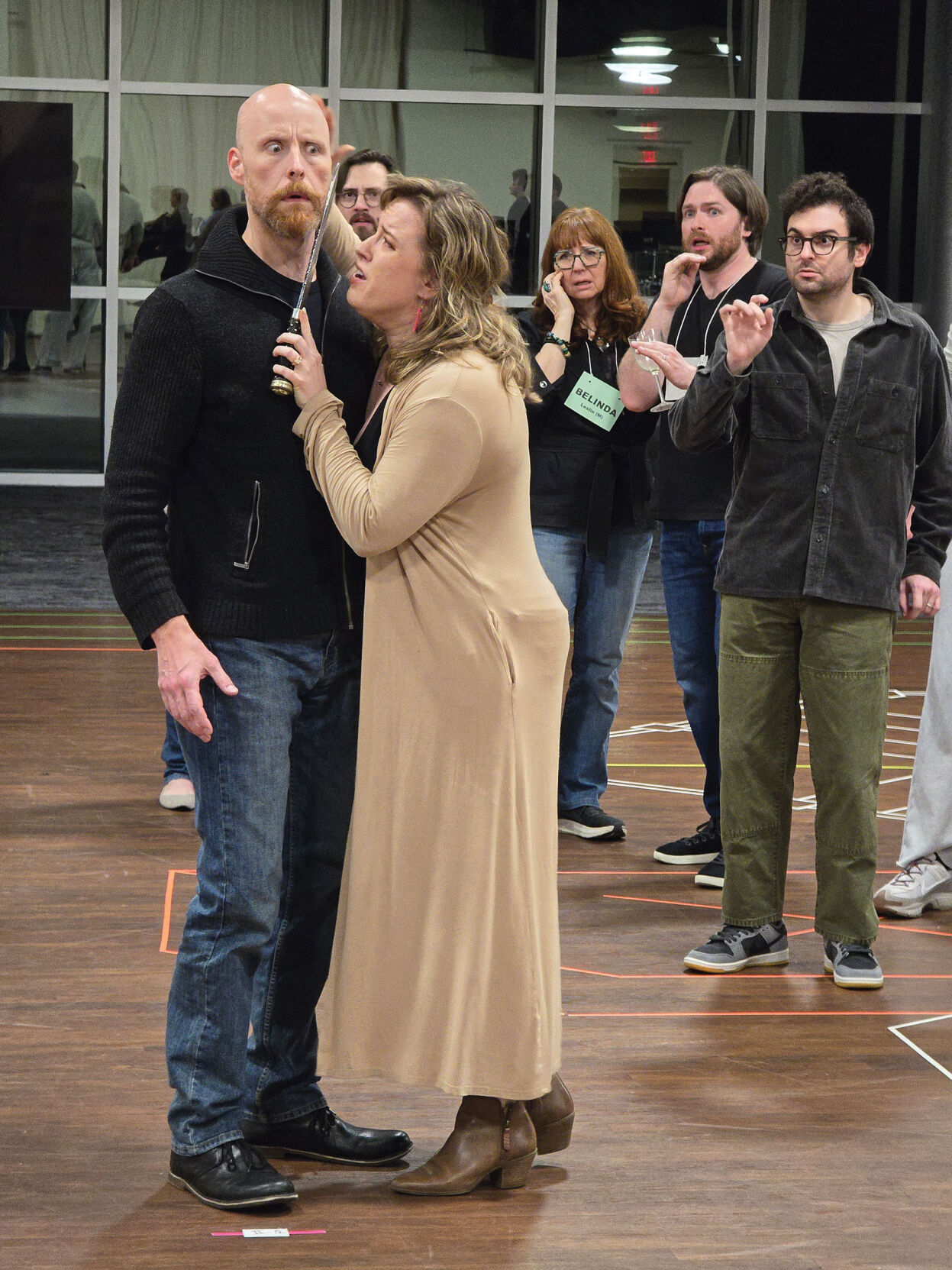
Timothy Mix and Rainelle Krause in rehearsal
Acclaimed soprano Rainelle Krause is widely known for her vibrant coloratura — that is, her virtuosic ornamentation of vocal melodies. Her skill is particularly on display in her signature role: The Queen of the Night in Mozart’s beloved The Magic Flute. She has sung the role with the Royal Danish Opera, Dutch National Opera, English National Opera and Deutsche Oper Berlin, among others — and delivered a decidedly electrifying performance with Nashville Opera just last season. Krause is set to make her Metropolitan Opera debut in the coveted role later this year. But for now, the reigning Queen is back in Nashville, and ready to take on Gaetano Donizetti’s haunted Scottish heroine in Lucia, the Bride of Lammermoor.
Based on Sir Walter Scott’s popular 19th-century novel about a young woman caught in the middle of her family’s feud with their neighbors, Donizetti’s Lucia is packed with big emotions and even bigger vocal fireworks. The piece offers a prime example of the bel canto (or “beautiful singing”) repertoire, a genre marked by exquisite but extremely demanding passages at the upper range of the voice. The title role — and especially Act II’s famously bloody “mad scene” — requires an exacting technique and the highest level of vocal virtuosity.
“I’m thrilled to be back in Nashville,” says Krause, an Indiana native currently based in the Dallas-Fort Worth area. “This is such an incredible opportunity for me, both artistically and career-wise. I love singing Queen, and I’m fortunate in that there always seems to be a demand for the role. But it’s always exciting to explore new challenges. So to have an opportunity like this, and to have the trust of Nashville Opera in doing my first Lucia — what a gift. I really can’t think of a place that I’d rather do this debut.”
Krause says she is particularly happy to be back working with artistic director John Hoomes.
“Everything is so collaborative with John,” she says. “He truly respects and trusts his artists. He has his own ideas, of course. But he’s also trusting me to bring my own artistic decisions to the table, and that’s exciting. To build this role in an environment where I feel supported and valued as an artist, where I feel safe to explore — that means a lot.”
And while The Queen of the Night feels like a bit of a sprint — the role’s familiar aria “Der Hölle Rache” typically lasts about three minutes — Krause sees Lucia as more of a marathon.
“It’s pretty wild,” she says. “[Lucia] is in nearly every scene. There’s intense singing throughout the opera, and then it culminates in this absolute tour de force ‘mad scene.’ But I love the way John has built this show. It’s really tight dramatically. Every scene ratchets up the tension in this pressure cooker that she’s trapped in, until she just cannot withstand it any longer. It’s such a powerful journey, and the way we’re doing it, it highlights everything that’s already in the score.”
And for Hoomes, that’s the beauty of Lucia. He says audiences can expect a grand production, complete with rich tartans and period costumes, that balances “ravishingly beautiful” vocals with striking theatricality.
“Rainelle Krause is a dream to work with, a fabulous singer and a wonderful actress,” Hoomes says. “She’s quite fearless in the way she approaches a role — and you have to be with this piece. It requires an incredibly refined technique, but if you concentrate solely on the vocal lines, the acting suffers. It becomes a ‘stand and sing’ approach. Making sure the drama is as strong as the vocals — that’s the challenge. And that’s what Rainelle brings to this role. This may be her first Lucia, but I don’t think it will be her last. I’ve always loved this piece, and I can’t wait for our audience to experience it.”





